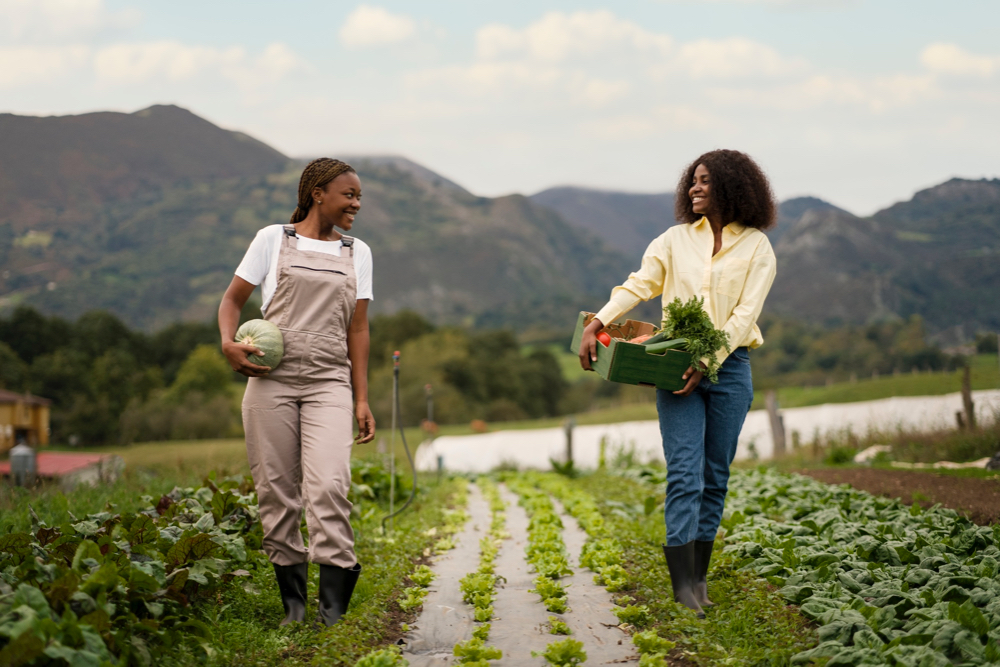In a resolute step towards fostering a society deeply rooted in justice and equality, the Foundation for Human Rights (FHR) proudly introduces the Growing Food for Life initiative. Partnering with 19 organizations across seven provinces, this initiative marks a significant stride in the foundation’s Community Engagement Programme and its commitment to supporting marginalized South African communities, with a special focus on women and youth, in realizing their right to sustainable access to food.

1. A Collaborative Journey: The Growing Food for Life initiative embarks on a three-year journey, combining theory-based learning with practical components. It encompasses access to markets, networking opportunities, and skill exchanges, creating a holistic approach to community development.
2. Community-Centric Approach: The initiative adopts a partner-driven, community-centric approach, custom-tailored to address multifaceted challenges such as climate inequality, water insecurity, Gender-Based Violence and Femicide (GBVF), and economic dependency. By addressing these challenges, the program seeks to empower communities and foster resilience through sustainable agroecology projects.
3. Tackling Economic Dependency: Zaid Kimmie, the Executive Director of FHR, emphasizes the initiative’s importance in addressing women’s economic dependency. In alignment with the 16 Days of Activism Against GBVF, Growing Food for Life aims to empower communities economically and cultivate resilience through sustainable agroecology projects with a lasting impact.
4. Inclusive and Empowering: Mamashoabathe Noko, the Community Engagement Programme Manager, underscores the initiative’s commitment to inclusivity and capacity strengthening. Through the Growing Food for Life initiative, communities are provided with a platform for broad participation, accountability, non-discrimination, and resilient community power.
5. Knowledge and Skills Exchange: The program operates on a model deeply rooted in knowledge and skills exchange, particularly in the fields of agroecology and food production. By doing so, it not only supports economic resilience but also facilitates partners’ ability to sustain themselves through eco-projects, focusing on long-term sustainability.
6. Building Economic Resilience: Noko emphasizes that the model offers an opportunity to enhance the capacity of partners, encouraging self-reliance and resilience through their pursuit of food production and sustainability. It goes beyond immediate relief, aiming to establish a foundation for long-term economic resilience.
7. Cross-Pollination and Networking: A pivotal aspect of the Growing Food for Life Programme is the promotion of cross-pollination, networking, and collaboration among partners spanning seven provinces. By encouraging the sharing of experiences and knowledge exchange, the initiative aims to build a robust network of partners dedicated to advancing agroecology and food sovereignty collaboratively.
8. Geographic Reach: Presently, the agroecology partnerships of Growing Food for Life span seven provinces—Eastern Cape, Mpumalanga, Limpopo, Kwa-Zulu Natal, Western Cape, North West, and Free State. Through grants, the initiative aims to enhance agency and resilience towards achieving food sovereignty.
9. Empowering through Dialogue: Communities engage in dialogues facilitated by the initiative to address challenges that hinder the realization of constitutionally guaranteed rights while simultaneously fostering food production and community growth.
10. Long-Term Impact: The Growing Food for Life initiative stands as a beacon for sustainable change. By addressing the root causes of inequality and economic dependency, it endeavors to leave a lasting impact on communities, fostering a future where justice, equality, and food sovereignty prevail.
Join 'Farmers Mag' WhatsApp Channel
Get the latest Farming news and tips delivered straight to your WhatsApp
CLICK HERE TO JOIN






